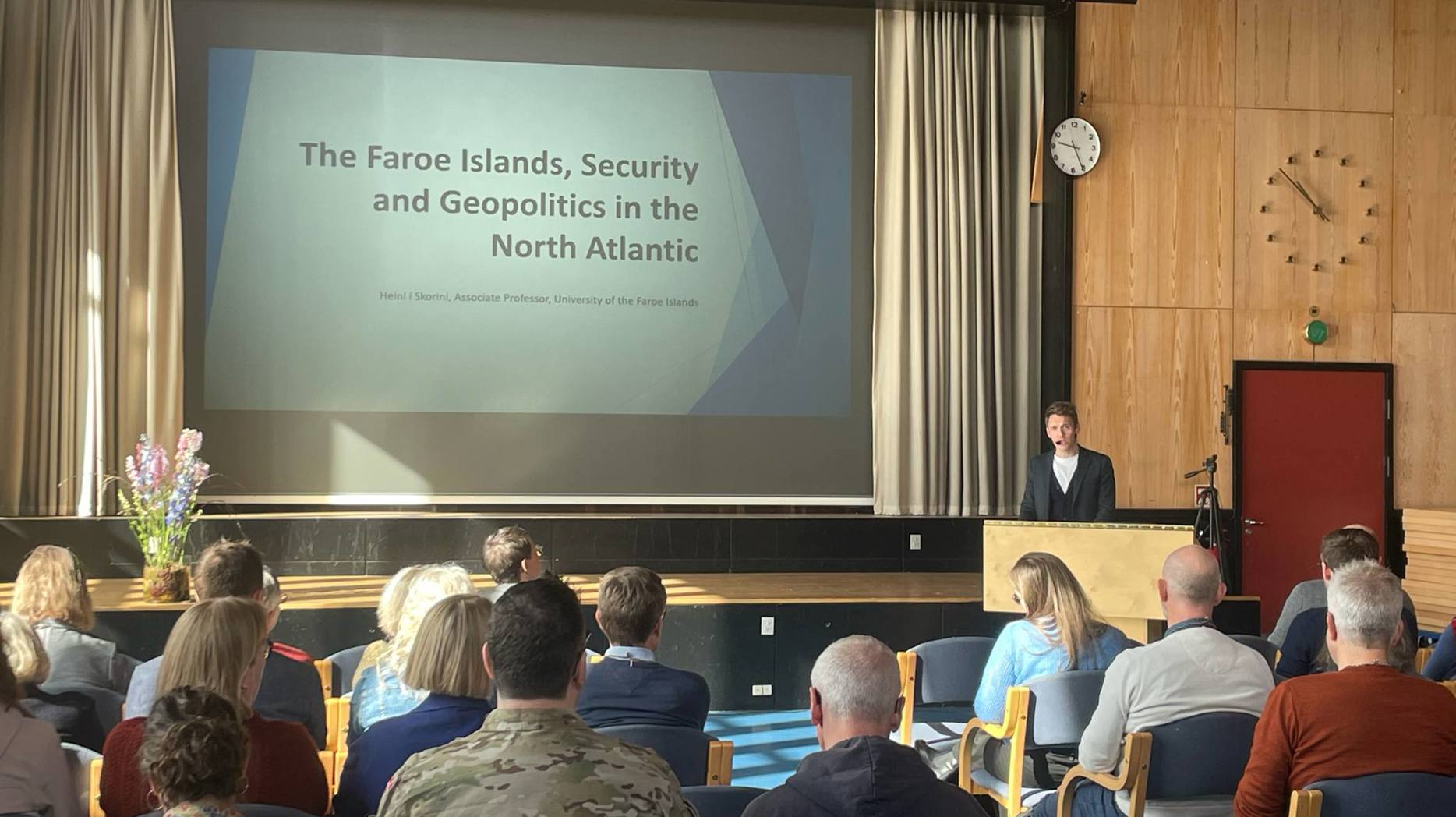
Heini í Skorini, a researcher at the Department of History and Social Sciences at the University of the Faroe Islands, was one of the first on the workshop program. (Foto: Harriet Hammer)
65 Researchers at Arctic Workshop at the University of the Faroe Islands
A major scientific workshop kicked off this morning at the University of the Faroe Islands under the headline “Arctic Science in Action.”
Around 65 researchers from the Faroe Islands, Greenland, and Denmark are gathered today and tomorrow for a workshop in Tórshavn, hosted by the University of the Faroe Islands.
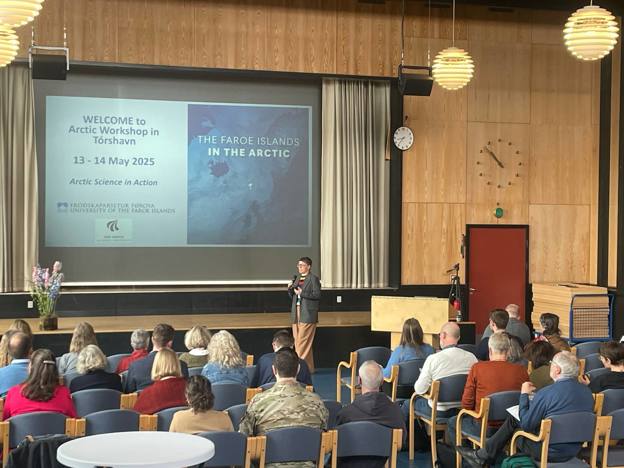
Carina Ren chairs AAU Arctic - a cross-faculty platform for cooperation in arctic-related research across scientific disciplines at Aalborg University
The aim of the workshop is to promote interdisciplinary research and collaboration.
The program includes presentations, discussions, and group work. The researchers will also visit Bakkafrost in Glyvrar, SEV’s wind farm in Húsahagi, and the radar station on Sornfelli.
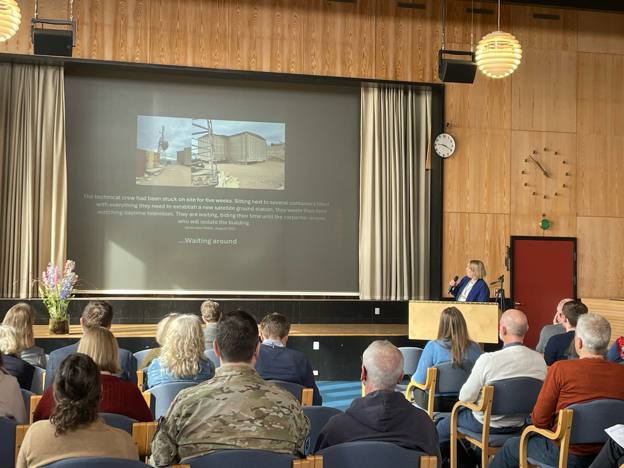
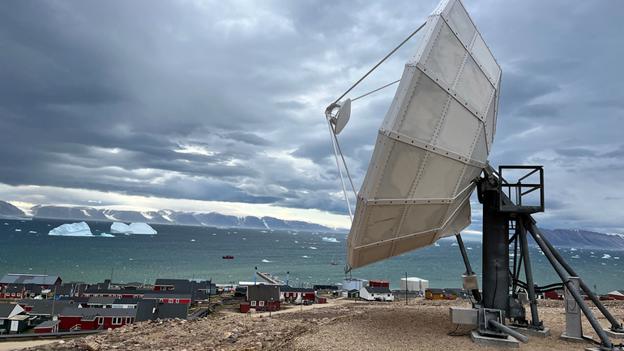
Mette Simonsen Abildgaard is an associate professor in Arctic engineering. This morning, she presented the research project DigiBreak, which is funded by the Carlsberg Foundation. She took this photo of the satellite station in Qaanaaq, Greenland
Tomorrow, there will also be a panel discussion with representatives from the Independent Research Fund Denmark and the Research Councils of the Faroe Islands and Greenland, where the topic will be the need for research funding.
The organizers state that the challenges in the Arctic require new approaches to organizing and collaborating on research and education, and that the workshop will emphasize this point.
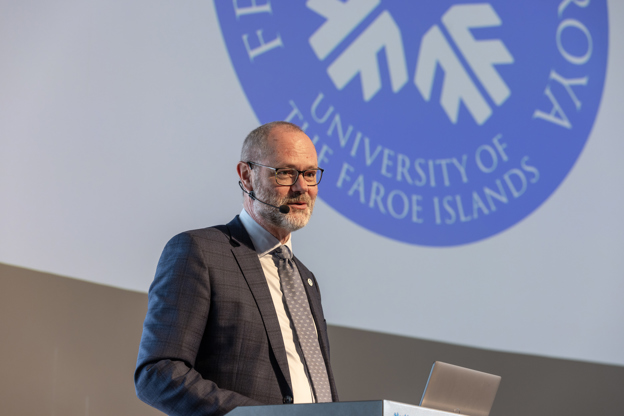
Martin Tvede Zachariasen, Rector, welcomed the researchers to the workshop at the University and said that the University of the Faroe Islands has a wide range of research activities that are particularly relevant in an Arctic setting. Some examples:
- We study the integration of immigrants to the Faroese, including their use of the Faroese language. Is it easy for immigrants to become integrated on the Faroe Islands? The short answer is unfortunately no.
- We study the security and geopolitics in the North Atlantic. As you know, the big powers such as the US, Russia and China have a huge interest in the Arctic. Is it easy for the Faroe Islands to balance geopolitical interests with business interests, such as the Faroese fishing and aquaculture industry? The short answer is definitely no.
- We study the history and archaeology on the Faroes. Do we know when the islands became inhabited? We do have some answers, but the dates keep changing. When I was a child we learned that the islands probably were inhabited in year 700-800, but now it is more likely to be before year 300. Modern dna-technology is helping here.
- We study the environment in the air, on land and in the sea. You will see many examples during the workshop. We think that the Faroe Islands is perfectly located as a platform for Arctic research. Easily accessible with world-class local infrastructure.
- Welcome – I hope that you will enjoy the workshop!, Martin Tvede Zachariasen said.
See the full program here.
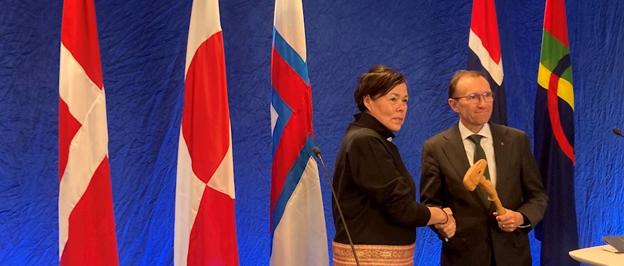
It is clear that the Arctic is high on the agenda in more ways than one.
Yesterday, Greenland, together with the Faroe Islands and Denmark, assumed the Chairship of the Arctic Council for the term until 2027. In this photo, Espen Barth Eide, Norway’s Minister of Foreign Affairs, symbolically hands over the gavel to Vivian Motzfeldt, Minister for Foreign Affairs and Research in Greenland, marking the Kingdom of Denmark’s assumption of the Chairship.
The formal agreement among the three countries in the Kingdom of Denmark is that Greenland will take the lead role in the Arctic Council, known as the Senior Arctic Official Chair. The Faroe Islands will hold the Deputy Senior Arctic Official Chair, while Denmark retains the role of heading the joint delegation of the Kingdom in the Council.
The new Arctic Ambassador for Denmark, Greenlandic diplomat Kenneth Høegh, will lead the day-to-day work of the Arctic Council, and Gunvør Balle, Head of Division in the Faroese Foreign Service, will serve as his deputy.
- The Faroese Deputy Chair position offers us a golden opportunity to highlight our role in the Arctic – especially our expertise in research, not least in the marine area, says Sirið Stenberg, Faroese Minister of Foreign Affairs.



